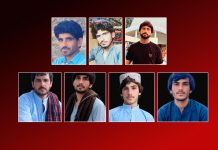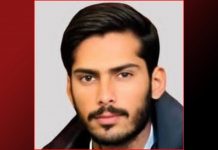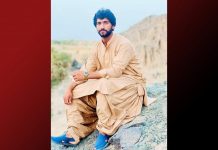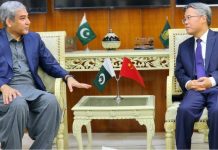Dr. Mahrang Baloch, leader of the Baloch Yakjehti Committee (BYC), spoke at the Young Experts Seminar on Freedom of Expression, highlighting the ongoing oppression in Balochistan and the disturbing cases of enforced disappearances.
The seminar, organized by PEN Norway, the World Expression Forum (WEXFO), and Utøya Island, is a closed retreat for a select group of young experts from around the world. It is being held from May 24 to 29, 2024, on Utøya Island and in Lillehammer, Norway.
Speaking on the first day, Dr. Baloch alleged that Pakistani security forces have forcibly disappeared numerous Baloch youth, including students, engineers, doctors, political activists, and journalists over the past two decades. She claimed these actions were carried out under the guise of counter-insurgency operations.
“Over the past two decades, under the guise of counter-insurgency operations and peace efforts, many Baloch youth, including students, engineers, doctors, political activists, and journalists, have been forcibly disappeared by Pakistani security forces,” Dr. Baloch stated.
She highlighted the challenge of determining the exact number of disappeared persons due to the state’s restrictions on international investigations by organizations such as the United Nations and Amnesty International. “When local activists and rights groups tried to document the numbers or raise their voices, they themselves disappeared,” she added.
Dr. Baloch shared her personal experience to emphasize the gravity of the situation. “I have been campaigning against enforced disappearances for over 10 years because I was affected by it myself when I was a teenager,” she said. She recounted how her father was forcibly disappeared by state agencies, and his bullet-riddled body was found in 2011. Her younger brother was also disappeared in 2017 but was released after a three-month campaign.
Dr. Baloch stressed that her case is not unique. “There are hundreds of young women like me. Today, I know I am an orphan, and my mother is a widow. But hundreds of children, teenagers, and young people do not know if their fathers, uncles, or brothers are alive or not,” she said.
She called on the Supreme Court of Pakistan, Parliament, and security forces to release the forcibly disappeared persons or present them in court. Dr. Baloch said that instead of addressing their issues, Pakistani authorities resort to violence. She mentioned the 1,600-kilometer-long march she undertook in December, marching for over a month, reaching Islamabad on a cold evening with children and women, only to be met with police baton charges, humiliation, and violence.
Dr. Baloch accused controlled media in Pakistan of running malicious campaigns against their peaceful movement. “We were abused and trolled by state-supported accounts on social media. Journalists were threatened and prevented from providing media coverage,” she explained.
Despite setting up a protest camp outside the National Press Club in Islamabad, Dr. Baloch said the media ignored them, and Pakistan’s intelligence agencies forced people not to join their peaceful movement.
She appealed for international support for their peaceful struggle for human rights in Balochistan. She expressed gratitude to PEN Norway and its Secretary General, Urogen, for providing a platform to share their stories. “Our story was not heard in Pakistan, but today the whole world is listening,” she concluded.






























